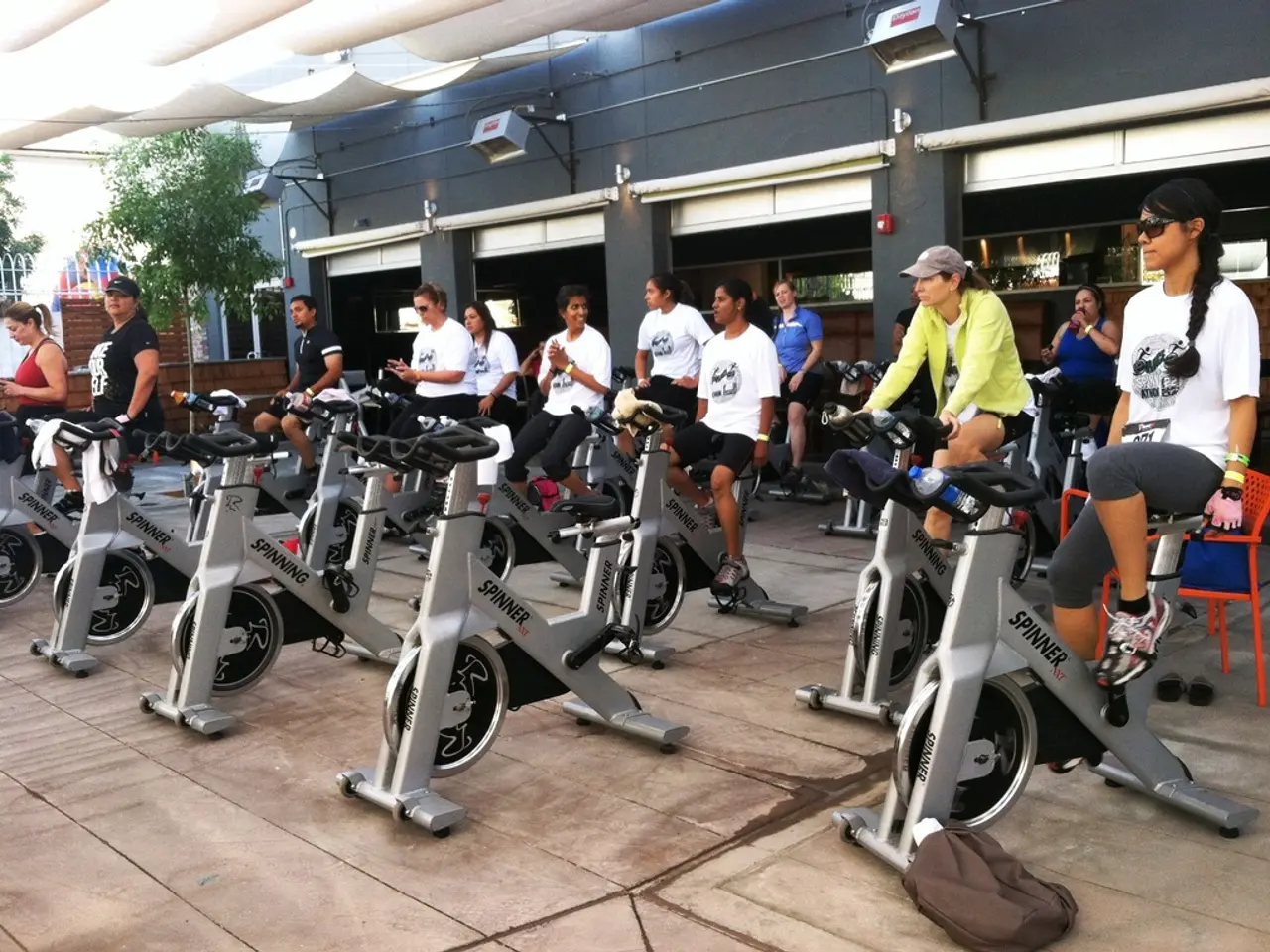After a strenuous workout, understanding the impact of alcohol consumption is crucial
In the realm of fitness and health, the question of alcohol consumption after exercise often arises. It's a topic that warrants careful consideration, as the effects of alcohol on the body can significantly impact post-workout recovery.
Firstly, it's essential to note that beer, compared to spirits, contains electrolytes and carbohydrates, making it the lesser of two evils when it comes to post-workout alcohol consumption. However, this doesn't mean it's a recommended choice.
After a strenuous workout, alcohol consumption is generally discouraged. This is because alcohol can impair muscle recovery, dehydrate the body, and negatively affect the immune system. Drinking alcohol immediately after exercise can hinder performance recovery and health, making it crucial to prioritise rehydration and proper nutrition before indulging.
Regular post-workout alcohol consumption may have long-term negative effects on fitness gains. One study found that even when alcohol is consumed with protein after exercise, muscle protein synthesis (MPS) can be reduced by up to 37%. This means that the body's ability to repair and build muscle is significantly hindered.
Moreover, alcohol consumption post-exercise can introduce additional swelling into tissues, which could make an injury worse. This is particularly concerning after resistance training and high-intensity interval training.
Dehydration is the biggest concern when drinking alcohol after exercise, as alcohol is a diuretic. This means it encourages the body to expel more fluid than it takes in, leading to a delay in the process of restoring fluid levels post-workout. To avoid this, it's advisable to 'double fist' with water when consuming alcohol post-workout to ensure full rehydration.
The body needs carbs and protein to recover from exercise, and alcohol consumption can negatively affect this recovery process. A meal or snack consisting of both carbohydrates and protein consumed shortly after a workout will help replenish the stored energy in muscles.
It's also worth mentioning that exercise has been shown to help decrease the urge to drink. If you have specific fitness goals, abstaining from alcohol after a workout may be beneficial for efficient recovery and achieving those goals.
However, it's important to note that moderate alcohol consumption after a workout does not necessarily inhibit muscular recovery for some individuals. The key is to consume alcohol in moderation and only occasionally to avoid any potential harm.
In conclusion, while it may be tempting to unwind with a drink after a tough workout, it's crucial to prioritise rehydration and proper nutrition. If you choose to drink, do so in moderation and only occasionally, and always remember to rehydrate and restore electrolytes first. Your body will thank you for it.
Read also:
- County Hall's grand display pays tribute to compassionate family members - County administration lauds loving relatives
- Grains of contemporary wheat now offer fewer essential nutrients
- Uncovered: The First Genetic Analysis of Sweet Potatoes Reveals They Originated as Hybrid Species with a Perplexing History and Six Sets of Chromosomes
- Experience the Variety of Wellness Offered by Jasmine Tea




